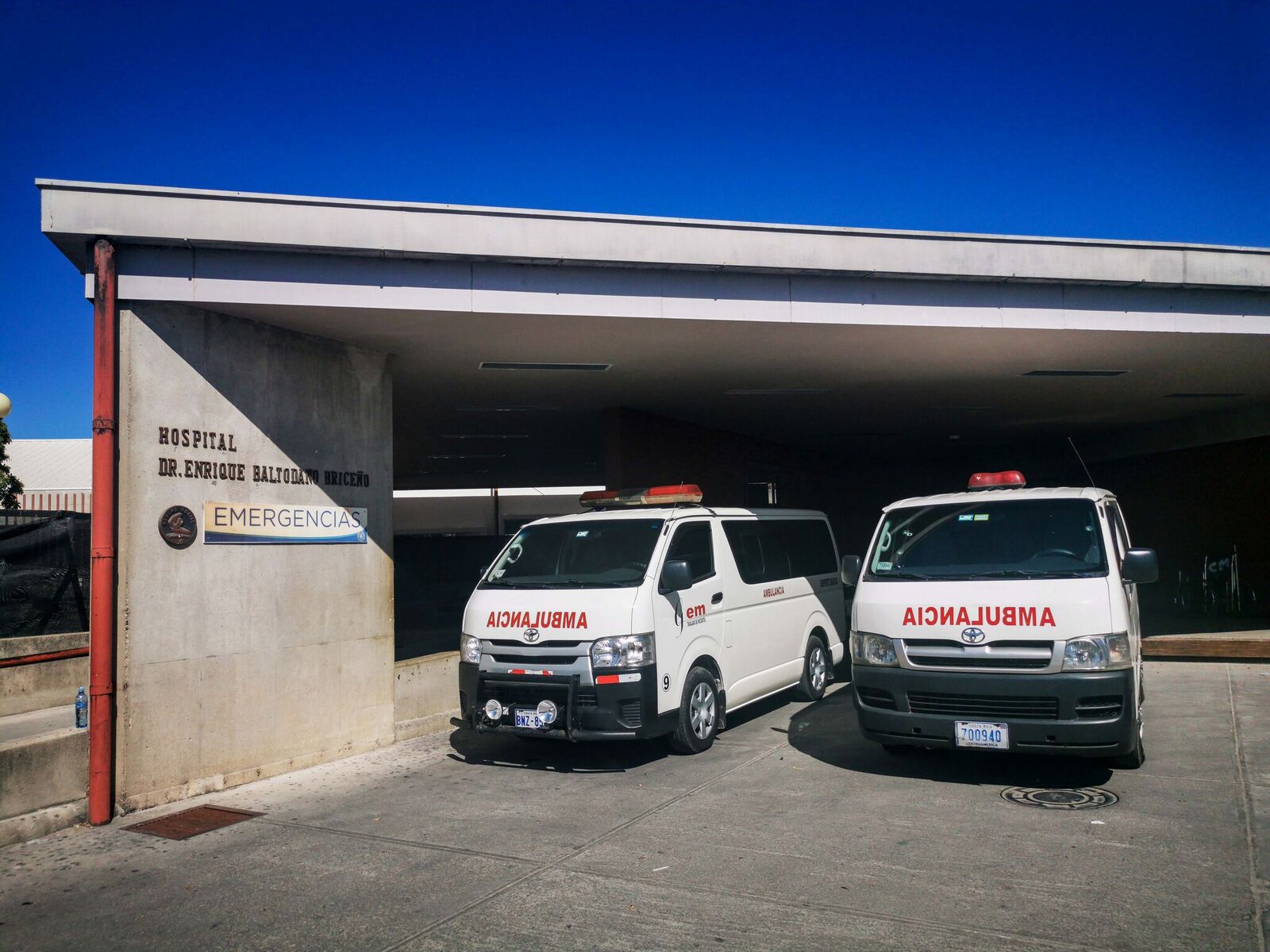
“Returning home after chemo is eternal because you’re already sick. You feel like it takes an eternity to get there,” says Maureen Badilla, who has lived in Las Juntas de Abangares all her life.
Maureen, who is 56 years old, has a daughter, two sons and six grandchildren. She describes the side effects of chemotherapy as “the worst thing that has ever happened to me in my life”: a cycle of exhaustion, nausea and vomiting that she went through every 22 days to mitigate the breast cancer that she was diagnosed with in 2016. On top of that, Maureen had to endure a journey of hundreds of kilometers from her home to San Jose.
Although she lives in Guanacaste, surgeries to remove the tumor, radiotherapy and chemotherapy sessions all had to take place at Hospital Mexico.
Maureen said she feels fortunate that her son took her to her appointments by car. The other alternative was an ambulance provided by the Costa Rican Social Security Fund (CCSS). “I can’t imagine how a woman can go so far in an ambulance,” commented Maureen, who overcame that episode and is now in the control stage with appointments and exams in Hospital Mexico every six months.
Grace Zumbado lives in Santa Cruz and has been treated for breast cancer twice since 2018. She has coped with her treatment in San Jose in different ways. At first, family members took her to the hospital, and then she found help at the National Solidarity Foundation Against Breast Cancer (Fundeso), which has a shelter in the capital for cancer patients. Grace acknowledges that this housing was a huge relief since it allowed her to avoid the “eternal” journey back home to Santa Cruz.
Grace is still undergoing specialized treatment at Hospital Mexico and now travels in Red Cross ambulances or a CCSS van, but she acknowledges that the trip can sometimes take up to six hours.
“The trip makes a difference because after chemo, we can have vomiting, a lot of diarrhea, a lot of fatigue. You want to get home and lie down. I would arrive at Fundeso and lie down immediately,” Grace commented by phone while she received her treatment in San Jose.
Due to their difficult experiences of going back and forth to San Jose with cancer and chemotherapy, Maureen and Grace are optimistic about the new area that Enrique Baltodano Hospital in Liberia has for administering chemotherapy in the province. This is CCSS’s first initiative to offer this treatment outside of San Jose.
This area was first used this year in January and has the capacity to provide treatment to 12 patients per month in five chairs and two beds, a moderate number compared to the 70 to 100 patients from Guanacaste who have to travel to Hospital Mexico monthly for chemotherapy, based on CCSS estimates.
Cancer is the second leading cause of death in the Americas, as indicated by the Pan American Health Organization (PAHO/WHO) this week.
“Being able to get chemo in Liberia is going to help a lot. It helps quite a bit because from Santa Cruz, it takes us about 40 or 50 minutes to get to Liberia. People would save a lot of time. CCSS would also save on the transportation it has to give to San Jose,” said Grace Zumbado.
The general director of the hospital in Liberia, Marvin Palma, also agreed with this.
“The less you go to San Jose, the lower the cost for the patient, and there is more adherence to treatment,” Palma told The Voice of Guanacaste.
According to the doctor, the hardship of the trip to San Jose, added to the possible adverse side effects of chemotherapy, causes people to quit getting treatment. “There might be two patients per month who don’t return,” said Palma, adding that this situation was aggravated by the risks of going to San Jose during the pandemic.
Why was Guanacaste chosen for creating this “chemo” area? Palma responded that CCSS considered the distance that patients had to travel to San Jose, the socioeconomic condition of the province, the incidence of cancer in the region and the equipment and personnel that the Liberia hospital already had.
Liberia’s chemotherapy administration area is supervised by an oncologist and also has assistance from the infirmary, the pharmacy, the laboratory and internal medicine.
However, the treatments are still prepared at Hospital Mexico since there isn’t a specialized pharmacy in Liberia that can store and prepare these drugs. For this reason, chemotherapies are sent by ambulance to Liberia to be administered.
Palma emphasized that cancer patients still have institutional transportation services at their disposal but that, in the future, CCSS should aim to decentralize cancer care in the country more and more.
Despite the obstacles, Maureen and Grace want to motivate others to face a possible cancer diagnosis. “That’s what we have science and doctors ready for: to survive,” Maureen said.




Comments